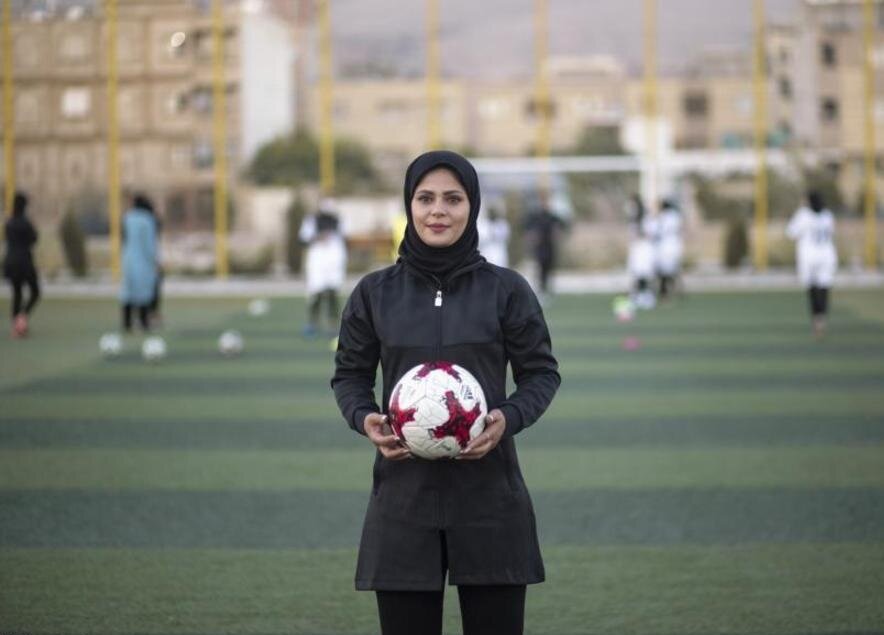Afghan coach wins Nansen Award for empowering refugees in Iran

TEHRAN – Rozma Ghafouri, a 29-year-old sports coach, won the UNHCR’s annual Nansen Refugee Award, a prestigious annual prize that honors those who have gone to extraordinary lengths to help forcibly displaced or stateless people.
She is the co-founder of the Youth Initiative Fund project, a community-based initiative that seeks to get refugee children in Iran off the streets and into education.
The Nansen Refugee Award is named in honor of Norwegian explorer, humanitarian, and Nobel Peace Prize winner Fridtjof Nansen, the first High Commissioner for Refugees, who was appointed by the League of Nations in 1921. It aims to showcase his values of perseverance and commitment in the face of adversity.
Rozma and her family fled Afghanistan 23 years ago. After working as, a laborer for much of her childhood, she founded the Youth Initiative Fund in Iran’s southern city of Shiraz in 2015 to help at-risk children.
With the backing of UNHCR, and its Iranian government counterpart, the Bureau for Aliens and Foreign Immigrants’ Affairs (BAFIA), the project now helps some 400 children a year, many of them out-of-school girls, through inclusion in sports and social activities, enrollment in literacy and numeracy courses and counseling with their families. Seeing what an impact the project has had on Afghan children’s lives in Shiraz, UNHCR and BAFIA are in the process of duplicating it in other provinces of Iran.
Every day, volunteers with the Youth Initiative – who include Afghans and Iranians – go door to door in the neighborhoods of Shiraz to talk to the parents of children who have either never gone to school or have had to drop out. Rozma and the team build a relationship with the parents and seek permission for their children to come to sports practice every week.
As the parents see the positive change that sports activities led by Rozma have on their children, they become more willing to listen to her pleas to let them go to school.
Rozma was nearly six years old when the Taliban overran her hometown in the northeast Afghan province of Kapisa and she fled the country with her parents and four siblings. In Iran, she was safe, but during her first years in exile, the family barely had enough to live on, let alone to cover school fees.
Iran is host to one of the largest and most protracted urban refugee situations in the world and has provided asylum to refugees for four decades.
The latest official government statistics in 2014, there are 951,142 Afghan refugees and 28,268 Iraqi refugees living in Iran. Many of the refugees living in Iran are the second and third generation, according to the United Nations High Commissioner for Refugees (UNHCR).
About 97 percent of refugees live in urban and semi-urban areas, while 3 percent are residing in 20 refugee resorts run by the UNHCR's main government counterpart.
In addition to Afghan refugees, there are about 2.5 million Afghans living in Iran, including those having a passport and undocumented Afghans. 450,000 Afghan who did not have identity cards or birth certificates have received Iranian visas that allow them to live, work or study in the country.
FB/MG
